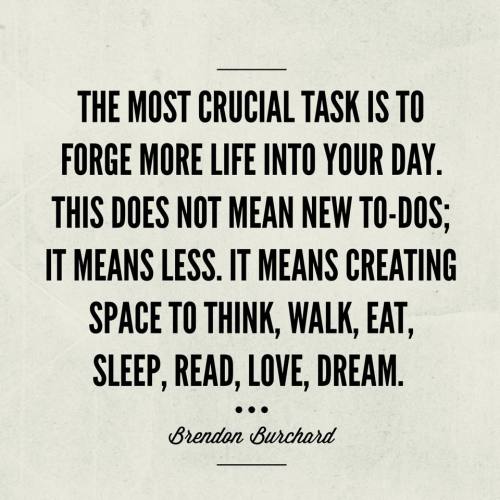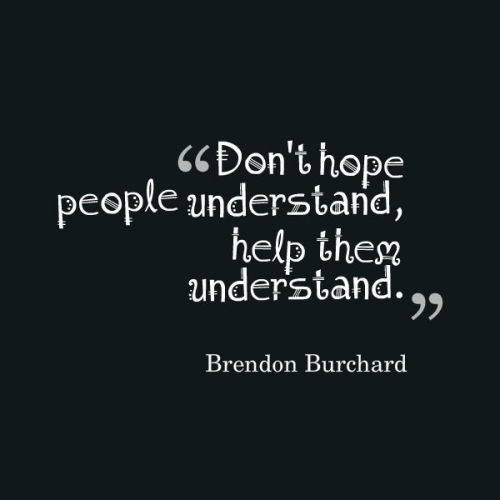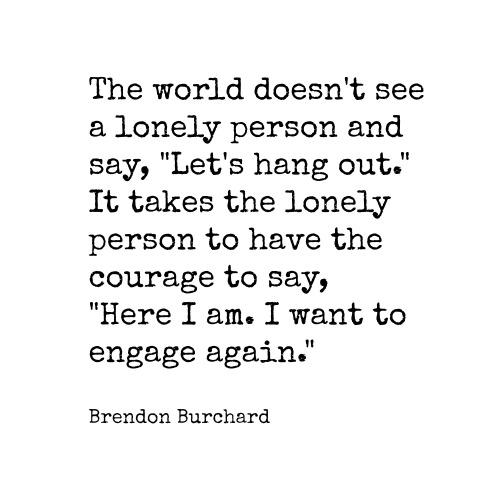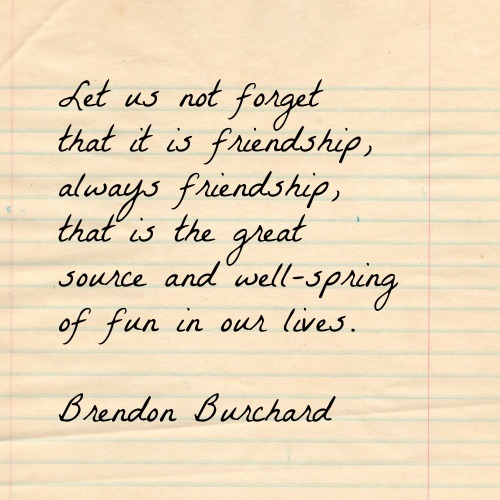Take Action In Your Life
Get New Posts via Email Follow via Tumblr
Get the mp3/podcast of this episode free on iTunes.
SUMMARY:
Are you stuck in analysis paralysis? Is there something you should be
doing, but but
you consistently find that you are not taking action? Here’s what to do:
Look Beyond Yourself and Serve. Stop worrying if you’re good enough, ready enough, or getting everything perfect in order to start. Look beyond yourself and realize your taking action can help others - your family, your team, your business and community. Serve! The way to get out of your head is to get in motion serving other people.
Clarify your vision and work backward. What does your ultimate outcome look like? What would you define as success? How will you know when you’ve reached your goal? Once you have that vision clear in your head, work backwards from that to define the process to accomplish it. You don’t have to know every step, just a step.
Accomplish 3 things every day. Just take three steps every day. If you don’t know where to start, try modeling others. What path did they follow? What are their habits? What do they seem to do every day or weekly?
Daily Practice. If something is important to you, it needs to become a constant in your life. You need discipline and the willingness to show up every day and work towards it. Put it in your calendar and do something every day. The momentum of that will teach you to stop stalling.
Do that, and you’ll start to experience what we call The Charged
Life!
Stream this episode below, listen on iTunes, or right-click here to download.

TRANSCRIPT
Analysis paralysis.
Why is it that sometimes you know what you should be doing but you just kind of keep reading about it or listening about it or going to seminars on it or reading books or blogs or posts or following people but you’re consuming all this information and not taking action?
And you keep thinking… “Why do I just I keep stewing on it, I keep thinking about it but I’m not doing anything towards it? What’s going on? Why am I spinning my wheels studying all the time and not taking real action?”
Let’s talk about that.
First and foremost, I’m going to say something that you’re not going to like but out of these four ideas I think this is the most important one, to kind of grab somebody and rattle them a little bit when they’ve been dreaming about something or thinking about something or studying it but not taking action.
And so, let me say it lightly but kind of directly, and that is: They’re selfish.
They’ve gotten into a place where all they’re thinking about is themselves in this process.
· Do I know enough?
· Am I good enough?
· Am I ready?
· What will people think of me?
· Do I have the complete plan?
· Have I taken out all the risks and all the unknowns?
· Have I considered every angle from Sunday?
They’ve done everything they could possibly do to control what is ultimately the uncontrollable. But worse, they got their perspective too myopic. They’re just focused on themselves.
To move someone forward, we have to have them have a greater connection with why they’re doing it. The reason a lot of people haven’t taken action is because they’re just so focused on themselves and they’re minimizing themselves… doubt, concern, fear, worry, hurt, they forgot to serve!
You wanna take more action? SERVE!
Think about: What is the outcome of when I do this, who is it gonna help?
How is it going to change their life? How is it going to shift society? How is it going to make that difference?
Connect with that again!
You’ve got too much in your head and out of the outcome. You’ve gotta get your head back in the outcome because when you start attaching to the difference, to the real magic, and you know it’s going to help somebody, your brain goes “Hey dummy! Do something here, you gotta help some people.”
And you’ll get off of that rotation of self concern. It is the self concern that is really fueling the analysis paralysis.
We gotta get you back into service because you know what? Leaders do. You know what?
Those who are out there trying to serve the world, trying to make a difference, they do the difficult work even when they’re unsure, even when they’re unready, even when they don’t have all the information they need because it’s their job to help people. So they just get in the mix. Let me help you, I don’t know all the answers but let me try to help you over here.
They’re serving others and from that higher calling, that higher mission, that higher purpose, they’re ready to get in the game even if they don’t know exactly how the game works, even if they don’t know all the controllables. They just get in the game. Because they want to help.
So we gotta get that serving spirit back into your body and into your mind if you’re ever going to move beyond analysis paralysis. There’s a bigger game to play. There’s people waiting on you, who need your help. Get over your stuff and help them.
I think that will serve.
The second idea is to clarify: What is your vision and the process necessary for making that vision come true? Because sometimes analysis paralysis is that you just don’t feel competent or clear. It’s just like, you know you want to help people, but you aren’t exactly sure what you’re supposed to do or how to do it. So what I’d recommend is think about the ultimate outcome when someone’s life is changed, if that’s what you’re seeking to do, or a business is built or something is actually in motion happening. What’s that look like? I mean, in a detailed level, what is the ultimate outcome look like? In other words, how do you know when you’ve won? How do you know when you’re happy with it? It’s the success, it’s going well. How do you know? What conditions would have to be met? What would your day be like? What would the business be like? What would the impact be like? Really think about that and then work backwards from that.
Ok, If the outcome is “My business is running without me, but I find myself doing all this analysis paralysis, I don’t know what to do”, well the problem is there’s this disconnect. Business runs without you, you’re researching but there’s nothing happening in between because you’re not working backwards.
Let’s work backwards: Ok, business runs without me.
What does that mean? Well it means income is coming in.
Ok, where is the income coming from? Well it’s coming from automation and my team.
Ok, so I need to automate things and create a team.
Well, how do I do that? And you just keep working backwards to today.
And that’s what’s really important. Is if you feel like you’re just spinning your wheels it’s because you don’t have a clear plan and outcome. So sit down today, create that plan, create that outcome and start working it. All the way back to today.
What’s step one? A simple thing to do that, to help you with that is this next point. And that is just accomplish 3 things every single day to move forward to that outcome and plan. 3 things every day. That’s it.
It’s like, you say
- “You know what? I’m still uncertain, I still don’t have all the variables.”
- Great! What’s the 3 things you did today?
- Uhhhh…
That’s where you get people. Just take 3 actions every single day and things will be great. A lot of people say “I don’t know what to do”, well that comes into now once you have the service in mind, you have the outcome and the process, sometimes you need to model other people.
What else is other people doing? And if you’re uninformed with that, it’s hard to know the path. Sometimes what you need to do, you need to go to a seminar or conference from somebody or a group of people who are doing the same thing you want to be doing. Sometimes that means getting a coach or a consultant who already has the path figured out and can serve you in that process. Sometimes that means as simple as just networking around town to figure out who else is kind of doing this who I can take out to lunch and ask them about their process. Sometimes just modeling others will give you that motivation because you’ll have more clarity and perspective to begin.
Then last piece… It has to become a daily practice for you. If there’s something that is important to you, a lot of the analysis paralysis is…. Stop blaming analysis ‘cause it’s really your brain is not the problem… it’s the discipline, it’s the willingness to show up every day and work towards something. That’s why I say those 3 goals, or accomplishing 3 things every day is really important, but I really want to fine tune this year for you and make sure you’re hearing me.
Every day.
That the problem with analysis paralysis is that it happens more often for us the less often we do things. Does that make sense? You get stuck more often when you’re not moving more often. I know it’s almost like you have to kind of think about that ‘cause there’s a little irony there, but the reality is that if you find yourself stopping and thinking and thinking and thinking and thinking it’s because you’re not in motion enough and we need to get you in motion again and the only way to get you in motion again is to make sure you have a daily habit that is keeping you moving forward to that thing you want to make happen.
Look, the analysis paralysis, if it’s a mind game then I get it, then maybe you just have this problem that you’re constantly always in your head. The way to get out of your head is to get in motion serving other people.
Do that and you’ll start to experience what we call, The Charged Life!


























